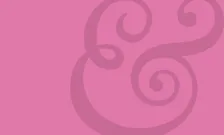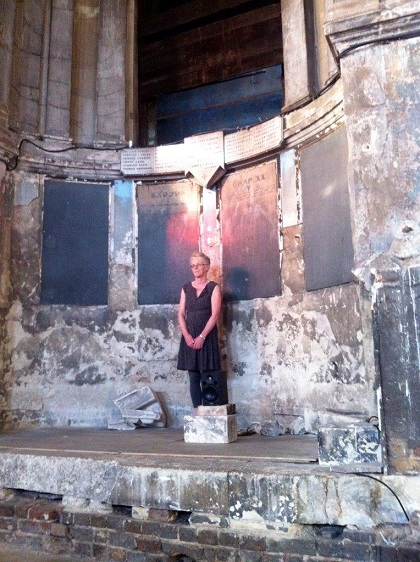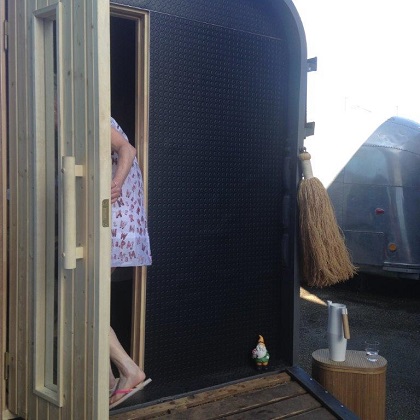13 July 2017
Gen Doy joins Classics as Artist in Residence for 2017/18
Artist Gen Doy is joining the Department of Classics in 2017/18 as Artist in Residence. In collaboration with Michael Trapp, Professor of Greek Literature & Thought, Gen will work on a project exploring the history and cultural mythology of the so-called 'Roman' Bath on Strand Lane.

In collaboration with Michael Trapp, Professor of Greek Literature & Thought, Gen will work on a project exploring the history and cultural mythology of the so-called 'Roman' Bath on Strand Lane.
Layers and echoes: sounding imagined pasts in the Strand Lane Roman Bath
Centred around the so-called ‘Roman’ Bath on Strand Lane, adjacent to King’s Strand Campus, the residency will approach the history and cultural mythology of the site as an exemplar of the ways in which the narratives surrounding historic and heritage properties are part of a process comprising fictions, myths, dreams, fantasies and wishful thinking, as well as mere physical change.

Pictured: Still from Gen Doy's performance The Ten Commandments of the Asylum Chapel, 2014, Asylum Chapel, Peckham. Photo by Patrick Coyle.
The Strand Lane ‘Roman' Bath, which is a National Trust site, has been a long-running puzzle for historians and architects. Its identity and origins are clouded by the fact that, in its current layout, it is severed from the neighbouring structures with which it once belonged and that make its history more intelligible.
The Roman identity of the bath is, in fact, bogus. The site actually originated in Stuart pageantry in the 17th century, which became overlaid, both physically and imaginatively, with Georgian cold bathing, memories and dreams of Grand Tour experiences, pseudo-Dutch ceramic tiles, and sculptural busts, which construct the bath geographically as well as historically.
The proposed outcomes of the project, titled Layers and echoes: sounding imagined pasts in the Strand Lane Roman Bath, will focus on artistic processes (such as the use of text, sound, voice, and projection) and their potential to uncover the layering of the bath's physical structure, its decoration and its various meanings. Beginning from the historical and archival sources exploited in Professor Trapp’s research, the project’s aim is to explore how a creative and imaginative artistic intervention in and around the bath could elicit differing and relative responses from students and members of the public.

Pictured: Gen Doy entering a mobile sauna to do a live performance accompanied by sauna visitors, Compass Live Arts Festival, Leeds, 2016.
By engaging with the bath in a way which invites sensual experiences, different from reading historical documents or listening to a guide, artistic outcomes could act as a catalyst for new modes of thinking about the site. Both undergraduate and post-graduate students in the Department of Classics will have the opportunity to visit the site, experience examples of work-in-progress and engage in dialogues with Gen and Professor Trapp. The content of the discussions will emerge as the conversations progress and will cover such topics as re-imaginings, fact, interpretations, fiction and creativity, and the ways in which art can be used in academic disciplines that are not fine-art based.
The proposed residency builds on aspects of the Virtual Bathing project, a collaboration between the Department of Classics at King's and The National Trust. The project is directed by Professor Michael Trapp.
Project team
Gen Doy is an artist living and working in London. She completed a Postgraduate Diploma in Fine Art at Byam Shaw School of Art, an MA in Fine Art at Central St. Martin’s and an MA in History of Fine Art and French Language and Literature from Glasgow University. Gen also has a PhD in History of Art from Essex University.
Gen’s creative work mobilises an extensive knowledge of art history and critical theory, and she has worked for many years in the field of visual culture, as a lecturer, writer, and curator. She uses various media in her work, but particularly sound, performance and installation. She also writes lyrics and sound for songs as part of some of her works.
Her work has been exhibited nationally and internationally and in other locations such as The Old Engineers’ Workshop at Trinity Buoy Wharf, London. In 2014 she installed a sound piece in the Old Dairy at the National Trust Property Uppark House, as part of a show curated by Unravelled. Her sound work has been broadcast on radio, specifically Resonance FM and basic FM, on several occasions.
As well as pursuing her own artistic practice, she has supervised and examined Ph.D. theses in fine art and photography, and in art history and visual culture studies. She has lectured at De Montfort University Leicester, The Open University, London College of Fashion, ICA London, Hayward Gallery, Ruskin College of Art, Birmingham University, Museum of Modern Art Bordeaux, The National Gallery London, The Peloponnesian Folklore Foundation Athens, and many other educational and artistic institutions.
More information about Gen’s work is available on her website.
Michael Trapp is Professor of Greek Literature & Thought in the Department of Classics at King’s. Michael read Classics at Corpus Christi College, Oxford University, and wrote his doctoral dissertation there on the second century Platonizing orator, and representer of Socrates, Maximus of Tyre. He came to the University of London in 1984, teaching first at Birkbeck College, and has been at King's since 1989.
Michael’s main areas of research are Greek literature and thought of the first two centuries CE, and the reception of the ancient world, with special reference to the figure of Socrates, and to the local history of classical studies at King's College London. He is fascinated both by the world of Greek writers and intellectuals in the first centuries of the Roman Empire, in particular the uses made of the ideas and practices they called ‘philosophia’, and by the ways in which particular numinous figures from antiquity, such as Socrates, have been re-imagined, appropriated and represented since their own day. He teaches a range of topics in classical Greek language, literature and thought, from general modules on literature and philosophy, to more specialised studies of death in Greek literature, Plato's use of myth, and the early development of cosmology and medical thinking in Greece.
Michael has written extensively on Greek literature and philosophy. Selected publications include Greek and Latin Letters: an Anthology with Translation (CUP, 2003), Philosophy in the Roman Empire: ethics, politics and society (Ashgate, 2007), and ‘A fine specimen of Neronian brickwork in Victorian London: how the Strand Lane Bath became Roman’, in International Journal of the Classical Tradition (2016).
Additional partners include Strandlines Digital Community at King’s, Dr Michael Squire in the Department of Classics at King’s, The National Trust and Westminster City Council.
About King’s Artists
King’s artist-in-residence programme supports opportunities for artists to work and collaborate with faculties across the university. The programme establishes artist residencies that inspire collaboration with students and staff across disciplines to embrace creativity and take risks, developing new thinking and creative outputs.
During the 17/18 academic year, Cultural Programming at King’s is supporting five new residencies, three within Arts & Sciences and two in the Health Faculties, with a fourth residency within the Arts & Sciences receiving support directly from the Faculty of Natural & Mathematical Sciences. Outcomes from these six residencies will be showcased in the upcoming academic year and beyond, within the public facing programme across King’s.
More information about the programme and artists-in-residence at King’s can be found on the King’s Artists webpage.
